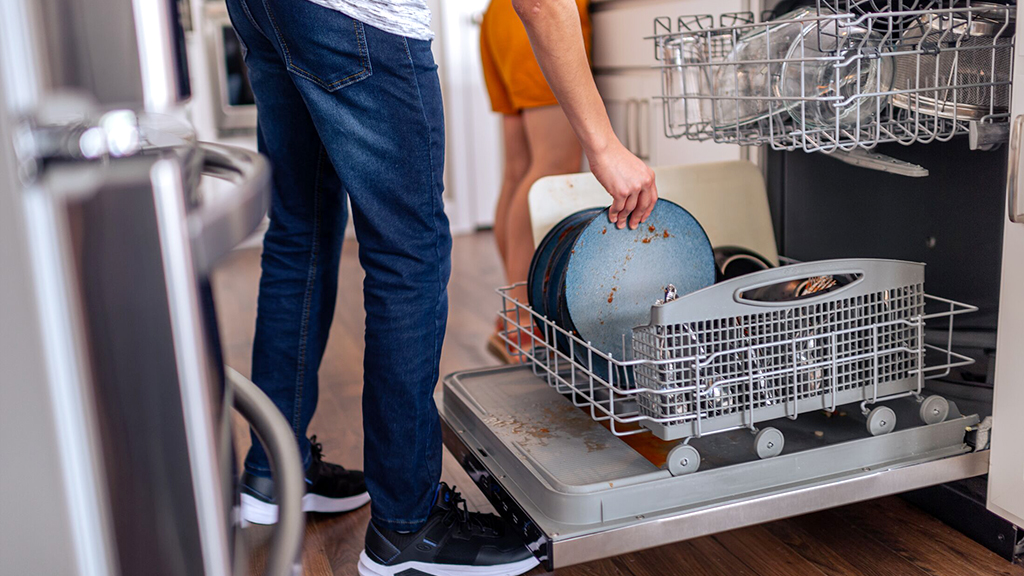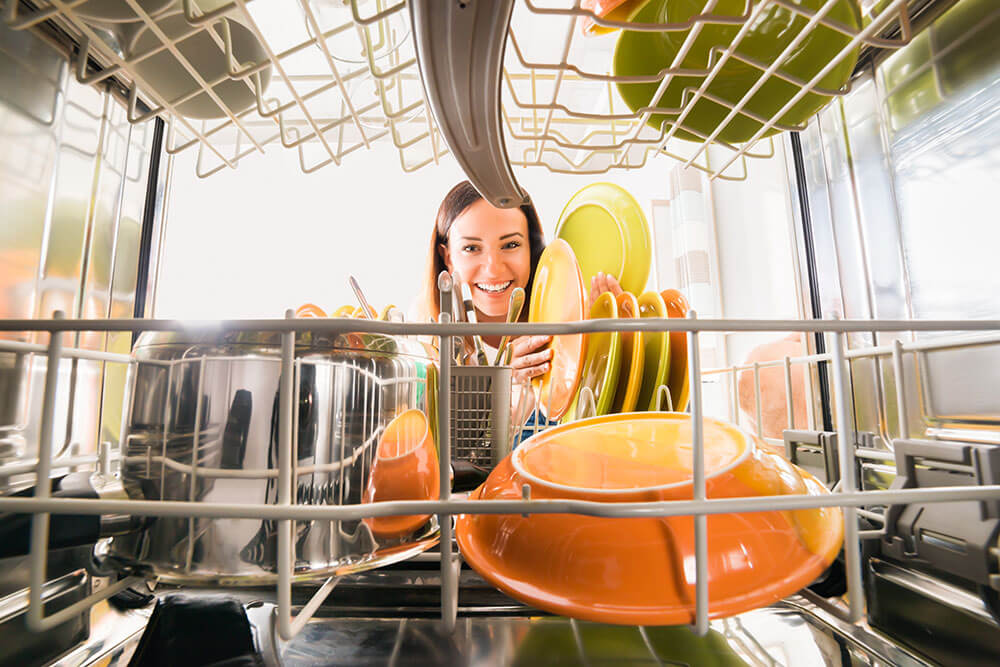Have you been looking for information on How to Troubleshoot & Repair a Dishwasher?

Having your dishwashing machine break down or malfunction can be a big deal and also create some pain in your home. Dishwashers are equipments that we make use of to clean dishes and also flatwares immediately to save us the stress and anxiety of by hand doing it.
Like every other equipment that reduces human initiative, dishwashing machines can break down and create some fault at some point in time. There are numerous mistakes your dishwashing machine could create, as well as while some of them can be solved by changing some parts or repairing them, various other much more extreme flaws will call for that you get a new dishwashing machine.
This article will certainly determine a few typical faults your dish washer might develop to impede its overall efficiency as well as just how these faults can be addressed.
Typical Mistakes
Typical dishwasher mistakes can range from small to major ones. Relying on the degree, you will certainly either need the solutions of expert plumbers to deal with or replace it.
Several of the most usual mistakes include:
Dripping Dishwashing machine
This is possibly the most day-to-day dishwasher trouble, and fortunately is that it is easy to determine. Leakages happen as a result of several factors, and also the leaks can ruin your kitchen. Typical causes of dishwashing machine leakages include;
If your recipes and also flatwares appear of the dish washer and also still look filthy or unclean, your spray arms may be a problem. Oftentimes, the spray arms can get blocked, as well as it will require a quick clean or a replacement to work effectively once more.
Lack of ability to Drain pipes
Occasionally you might see a huge amount of water left in your tub after a wash. That is probably a drainage problem. You can either check the drain hose pipe for damages or obstructions. When unsure, get in touch with an expert to have it inspected as well as taken care of.
This is one more typical dishwashing machine issue, and it is primarily caused by food debris or grease sticking around in the equipment. In this instance, try to find these bits, take them out as well as do the meals without any dishes inside the machine. Wash the filter extensively. That will certainly aid do away with the poor odor. Ensure that you remove every food fragment from your recipes prior to transferring it to the machine in the future.
Conclusion
Several of these usual dishwashing machine faults can be fixed easily in the house, however sometimes, the faults could be enormous and also might require the attention of specialists. If you reside in Rochester, Syracuse, and other parts of America, allowed the experts correctly diagnose what could be incorrect with your dishwashing machine and extend an option.
We also mount dishwashing machines if you just bought a brand-new one or mean to replace your very own. With our several years of experience in the industry, we make certain to provide you the best feasible services.
7 COMMON PROBLEMS THAT LEAD TO DISHWASHER REPAIR OR REPLACEMENT
Your Dishwasher is Leaking
As with a leaking clothes washer, there are many potential reasons why your dishwasher is regularly leaking. Among other problems, your leaking dishwasher may have:
A damaged drainage hose A faulty pump and/or pump seal A bad door seal (this is likely as dishwashers age since the seals become brittle) Overloading can also be the cause of occasional leaking, so it’s wise to follow your dishwasher manufacturer’s advice on how to load plates, utensils, and larger items like pots and pans. You can also look for information on how to properly load your dishwasher online. This is a subject that many people have opinions about, and there are tons of dishwasher loading tutorials available, believe it or not!
You Have Dirty Dishes Even After the Dishwasher Has Run
This is another problem that can be caused by overloading your dishwasher, though you may also be using the wrong detergent for your particular dishwasher. This is easy enough to do, as there are lots of different dishwasher detergent formulations for sale—powders, gels, and dissolving tablets.
Check your dishwasher’s manual for more information or visit the manufacturer’s website for help choosing the detergent type that works best with your particular appliance. All the best dishwasher brands should offer support and troubleshooting advice on their websites.
Unfortunately, sometimes more serious problems—like damage to circuitry or electronic control components—can be the cause of your dishes not getting clean. While relatively uncommon, power surges can damage your dishwasher’s electronics, which can prevent cycles from fully running. If your dishwasher has an electronic display of any kind, it may show error codes for incomplete cycles. You’ll need to contact a reliable dishwasher repair resource for help with this kind of problem.
Your Dishwasher is Not Fully Draining
This problem is often due to clogs in the drainage system of your dishwasher. Improper drainage can create huge messes, like damaging leaks and bacterial growth inside and outside of your dishwasher. Some dishwashers have self-serviceable filter components that should be cleaned out regularly to prevent clogging.
However, your dishwasher could also have more significant problems with its drain pump or other components. As we discussed above, damaged circuitry can prevent cycles from running or advancing properly, and that could be the culprit in this case, as well. It’s best to call an appliance expert for help with dishwasher repair due to drainage failure.
Your Dishwasher Won’t Turn On
A dishwasher that won’t turn on doesn’t necessarily equal a “dead” dishwasher. You could have a simple blown fuse or tripped breaker affecting your dishwasher’s power supply. Check to be sure your dishwasher is receiving the power it needs to run.
Another common issue that will prevent your dishwasher from starting up is a faulty door latch. If your dishwasher can’t close properly—or the electronic control system “thinks” it’s not closing properly—the appliance won’t start.
Your Dishwasher Has Water Fill Problems
Another issue that is sometimes caused by damaged circuitry and cycles that aren’t running or advancing correctly, water fill problems can be tricky to troubleshoot. If your dishwasher is not filling at all—or won’t stop filling as it operates—it could be due to a faulty float or float switch, or a water inlet valve problem, too. And these issues are best addressed by dishwasher repair professionals.
https://www.kaappliance.com/blog/7-common-problems-that-lead-to-dishwasher-repair-or-replacement

I found that piece on Why is My Dishwasher Not Cleaning Properly? while doing research the web. Be sure to take the opportunity to share this content if you enjoyed it. Thanks a bunch for your time. Please come visit our site back soon.
Information Here